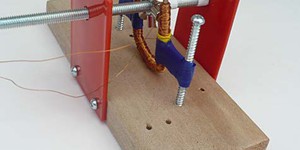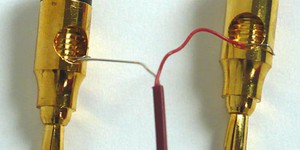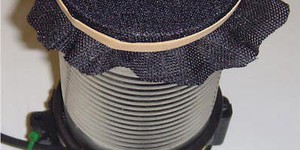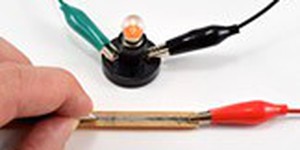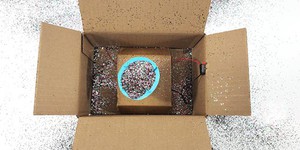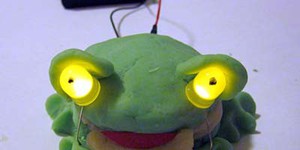Electricity & Electronics Science Projects (77 results)
|
Select a resource
Sort by
|
The electricity you use to power everyday devices is generated by electrical generators. These fascinating and powerful machines rely on magnets to function. Though they might seem extremely complicated, once you finish this science project, you will understand how, why, and when they generate electricity.
You will build your own generator, make small changes in how exactly the magnets are placed, and test when moving magnets generate electricity.
Read more
Featured
Have you heard that garlic powder is supposed to inhibit the growth of bacteria? Which do you think would make a better disinfectant: a solution of garlic powder or a solution of bleach? This project shows you a straightforward way to compare the effectiveness of different disinfectants (or other antimicrobial agents), by measuring zones of inhibition on a culture plate.
Read more
Every day, no matter where you are, you will see people using their cell phones. People use their cell phones for
more than just making calls though. They use them for texting and searching the Internet, too. But some health groups
are concerned that using your cell phone too much can be hazardous to your health as it exposes your body to electromagnetic radiation. In this electricity and electronics
science project, you will investigate how much radiation your cell phone emits when used…
Read more
A tried and true balloon activity is to rub a balloon on your head to make your hair stand up. How does the rubbing build up static electricity? Do this experiment to see if the number of rubs makes a difference.
Read more
Everyone knows electricity can create heat, especially because our electrical appliances tend to warm up when turned on. But wouldn't it be cool to do the reverse — generate electricity from heat? In this science project, you will study why it happens, measure the effect, and then use the phenomenon to build your own device, a thermocouple thermometer, that will enable you to convert heat into electrical energy.
Read more
Have you ever accidentally burned out an LED while building a circuit? What about doing it on purpose—for science, of course! In this science project, you will intentionally send too much current through LEDs to see if they will burn out or even explode! How much current does it take to destroy an LED? How does this compare to the LED's rated current value? Try this project and find out! Check out this page for more LED science projects.
Read more
Electronic devices can be designed to detect dangerous fumes or other hazards, such as smoke or carbon monoxide. In this electronics project, you will build another potentially life-saving detector—a radon detector. Radon gas is radioactive and can pose a hazard to your health if you live in an area where it leaks from the ground. In this electronics science project, you will learn how to collect radon with an ordinary dusting cloth mounted on the intake of a fan, and then measure its…
Read more
Dimmer switches let us control the brightness of a light, anywhere from completely off to full brightness. This can be nice when you want to set the brightness "just right," as opposed to a regular light switch that only lets you turn a light on or off. It turns out that you can make a dimmer switch out of an everyday object—a pencil! Try this project to find out how a dimmer switch can control the brightness of a light.
Read more
Have you ever seen a video of a glitter prank package? They usually show an unsuspecting person opening a package or a gift, only to be sprayed by a shower of glitter. Former NASA engineer Mark Rober got tired of thieves stealing packages off his porch, so he decided to build an elaborate decoy glitter package*, as he shows in this video. Mark's device involves a lot of custom software, electronics, and 3D printing, so might seem a little intimidating if you are new to engineering. This video…
Read more
In this science project, you will build what might be the world's simplest motor. It has just four basic parts: magnets, a battery, a screwdriver, and a short piece of wire. It takes only minutes to assemble, but it provides a wonderful device to explore how electricity and magnetism combine to produce a fast-spinning motor.
Read more
Have you tried our first and second play dough circuits projects? Are you a master circuit artist, ready to try something even bigger and better? Try this project to see if you can build a three-dimensional light-up sculpture.
Read more
|
Explore Our Science Videos
Lift Ice with Yarn STEM activity
Why Do Apples and Bananas Turn Brown? - STEM activity
Explore Concave and Convex Mirrors– STEM Activity.

